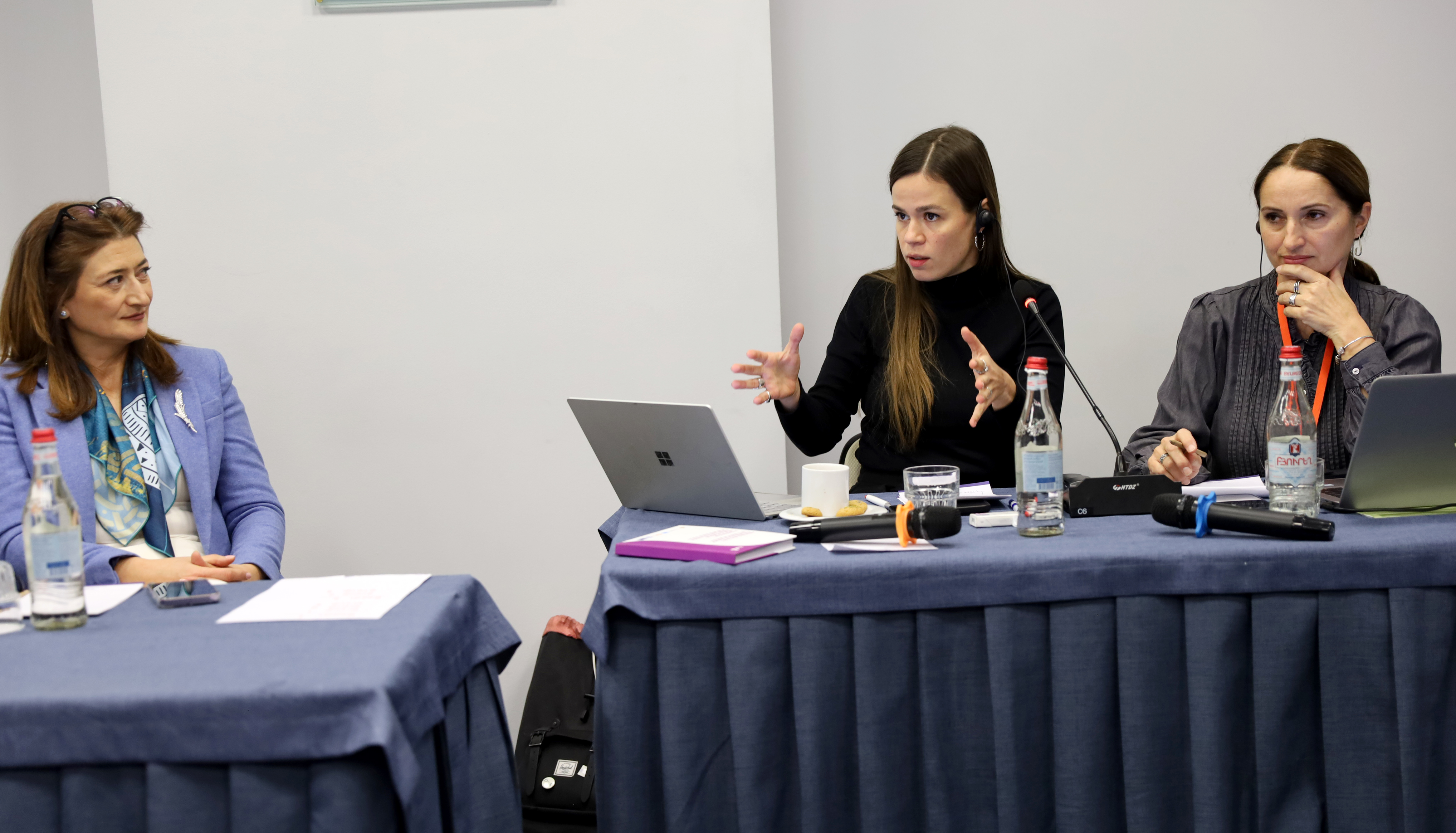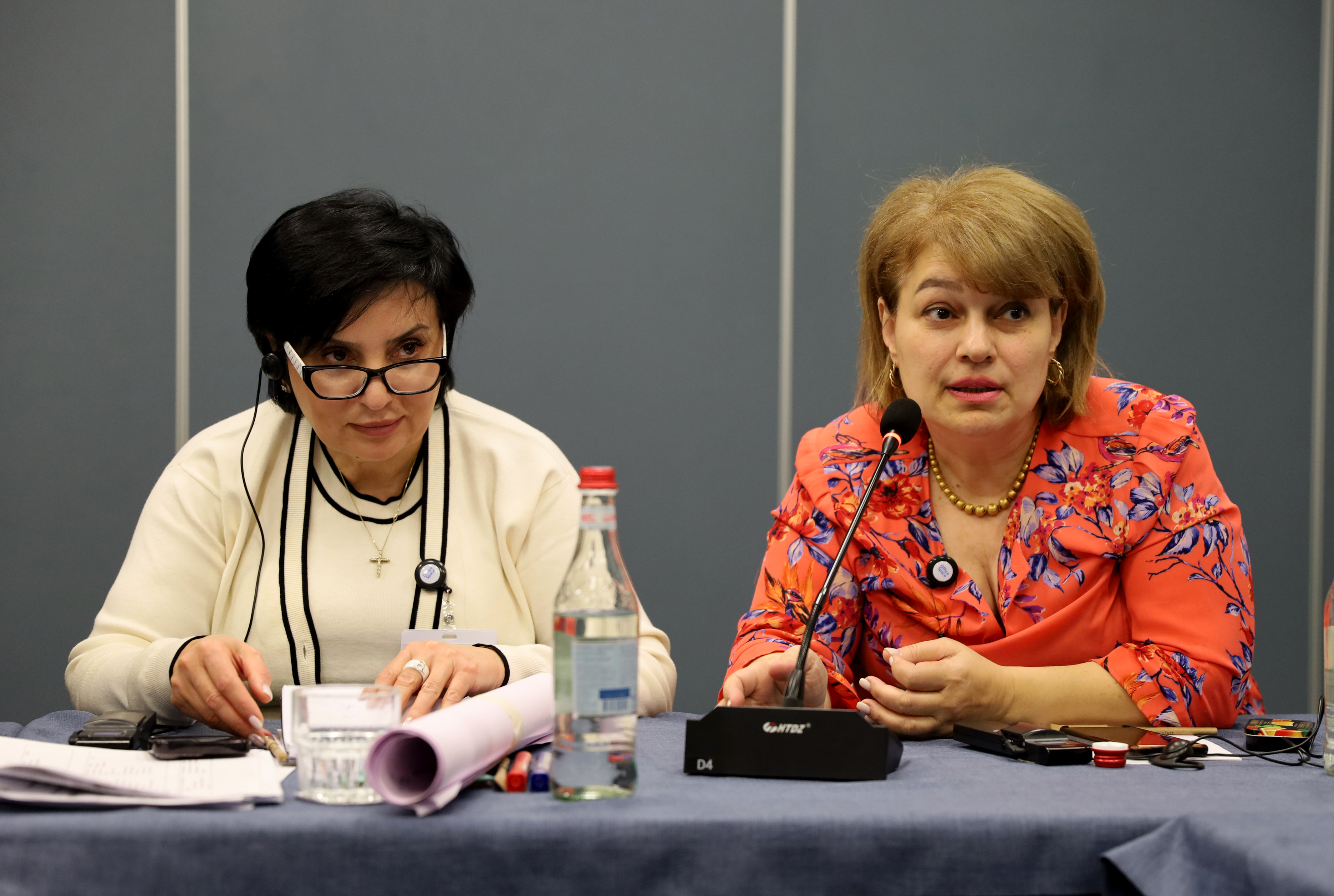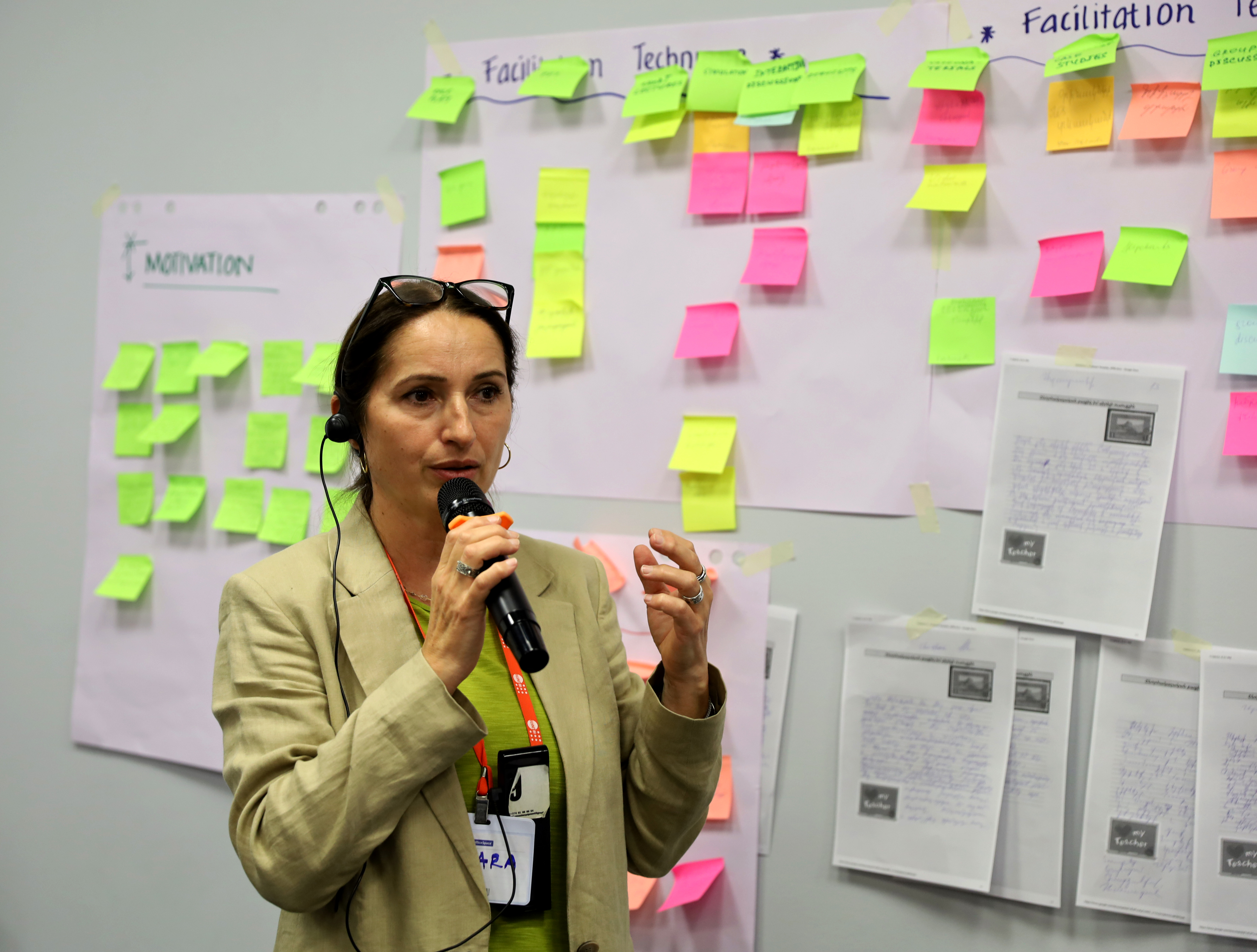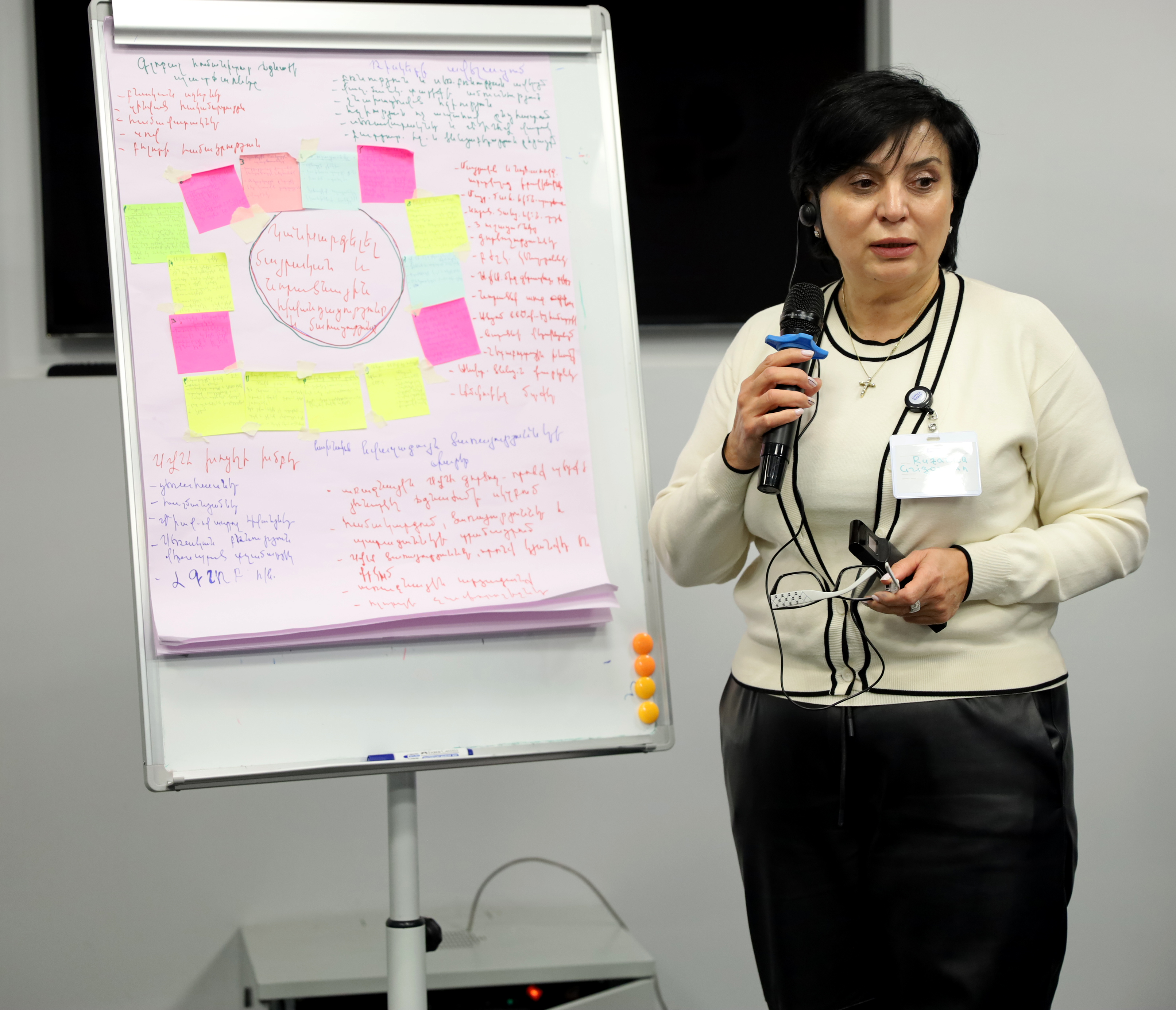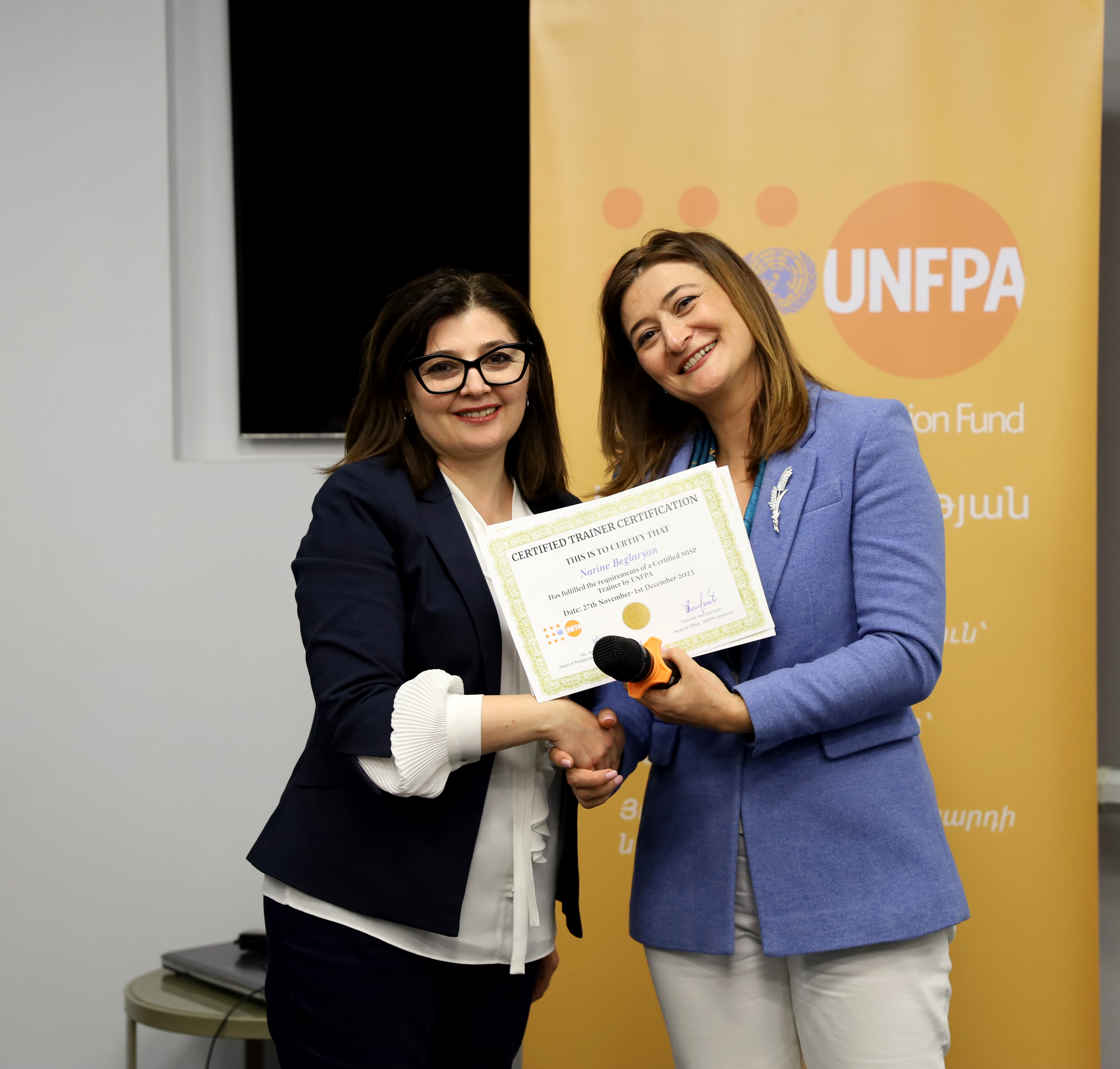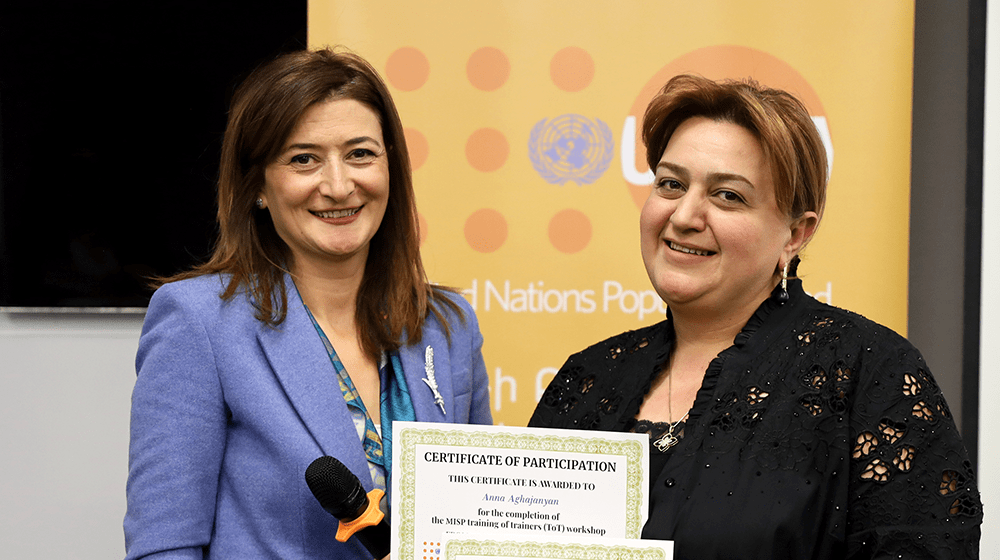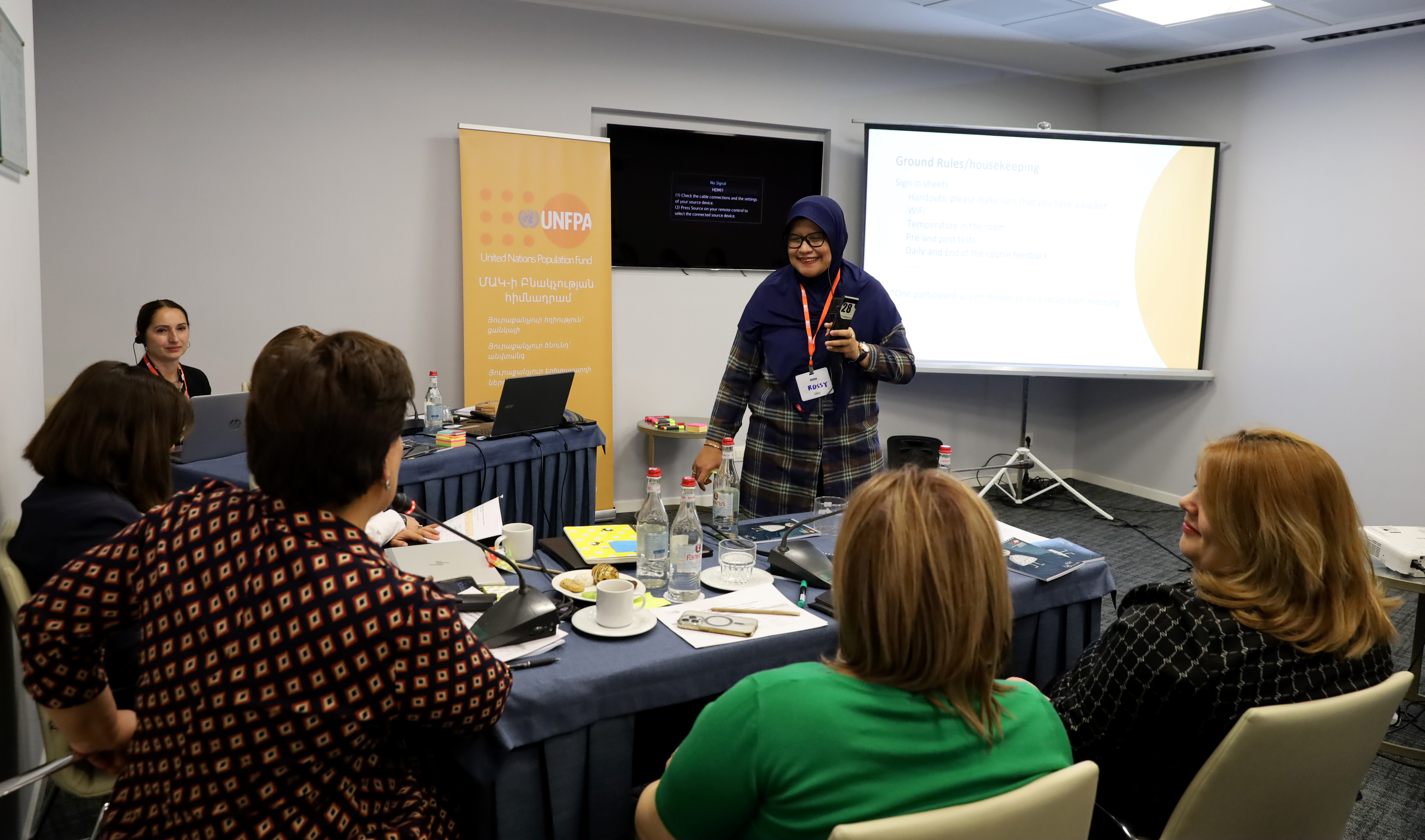
From November 27th to December 1st, training for trainers was conducted to address the challenges and share best practices in providing Minimum Initial Service Packages (MISP) for sexual and reproductive health issues.

The five-day training, initiated by the UNFPA, brought together 17 specialists from various medical institutions of Yerevan and across different regions of Armenia. They gained knowledge and skills necessary to conduct courses on MISP.
Rosilawati Anggraini and Zarife Miftari from UNFPA led the training.

"For the first time in Armenia, a course for MISP trainers was organized. Participants not only acquired knowledge about MISP strategy and its role but also improved their skills on conducting training and getting acquainted with the best practices. This course was made possible through the support of international partners from UNFPA, to whom we extend our gratitude. Given the current challenges, it is crucial to engage medical workers from border regions in the MISP course. This inclusion ensures that, in emergency situations, we can effectively deliver the necessary life-saving services to our population. Upon completion of the course, participants will undergo assessments, and those who successfully pass will be certified as MISP trainers. Equipped with their newly acquired skills, they will be well-prepared to provide services, share knowledge, and train other professionals in the future," stated Narine Beglaryan, SRH Programme Analyst, UNFPA Armenia.
The training highlighted coordinated set of six priority activities designed to prevent sexual violence and respond to the needs of survivors, the transmission of and reduce morbidity and mortality due to HIV and other STIs, excess maternal and newborn morbidity and mortality, unintended pregnancies and plan for comprehensive SRH services, integrated into primary health care.
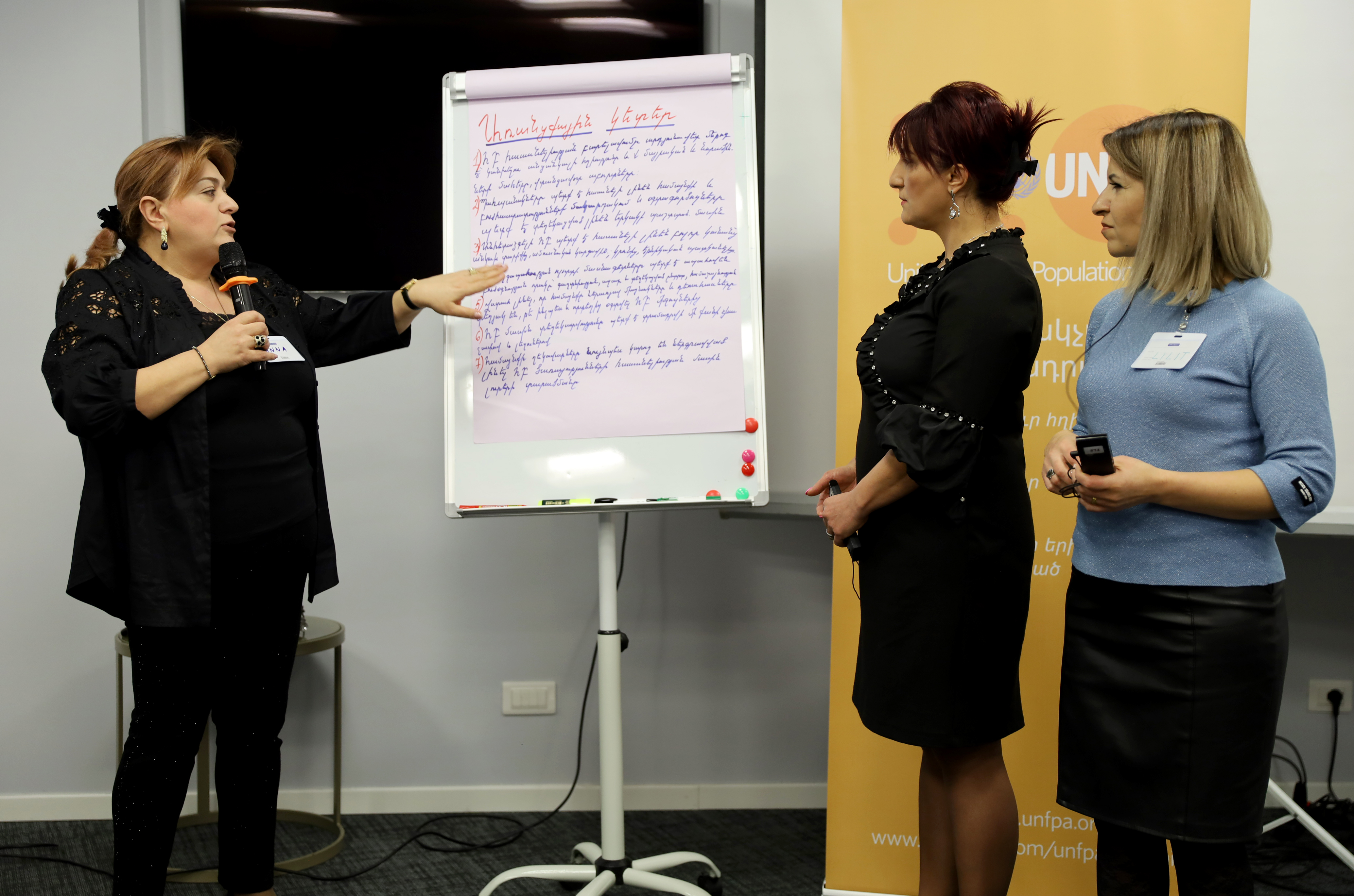
Edita Gharibya, Head of the Pregnancy Pathology Department at "Erebuni" Medical Center, expressed,
"We have never undergone such a course with a specific methodology before. The skills and knowledge acquired during these days will not only be applied during the MISP course but also in other training sessions, as we take on the role of trainers in our work."
Anna Aghajanyan, an obstetrician-gynecologist at the women's consultation of the Republican Institute of Reproductive Health, Perinatology, Obstetrics, and Gynecology, remarked,
"Unfortunately, we are not far from emergency situations, and everyone should be prepared to navigate such crises competently. It was particularly crucial that this knowledge reached our partners in border regions, creating ambassadors who can organize work on the spot. I assign great importance to the role of this course. As lecturers, we have gained valuable insights, and moving forward, we will impart this knowledge to our students using the new methodology."
